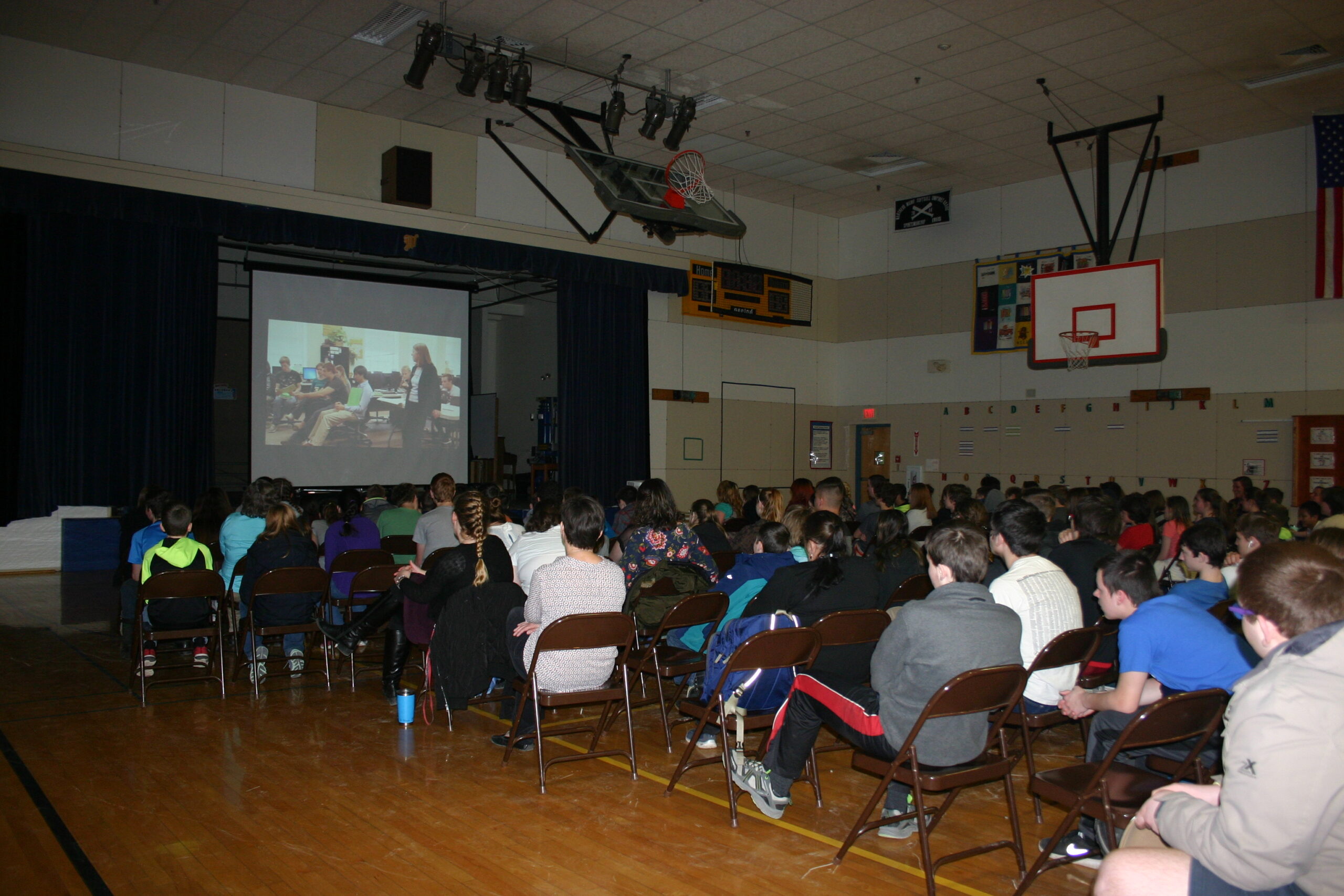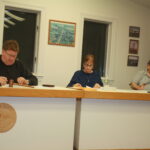
WASHBURN, Maine — Students in grades six through 12 learned the importance of balancing screen time with physical activity while viewing the documentary “Screenagers” at Washburn District Elementary School on Thursday, March 29.
“Screenagers” is directed by physician and documentary filmmaker Delaney Ruston and analyzes the physical, emotional and mental impact of excessive screen time on young adults. Ruston interviews her own teenage children, psychologists, brain scientists, teachers and parents to uncover why digital technology, cell phones in particular, have become damaging habits, sometimes resulting in addiction, for teens across the country.
The screening in Washburn is the second one that 5-2-1-0 Let’s Go!, a program of the Aroostook County Action Program and Aroostook County Health Network, has hosted recently. The first screening was held at Easton High School on March 21 with subsequent family viewings scheduled at Central Aroostook High School in Mars Hill on April 2 and Wisdom High School in St. Agatha on April 12.
5-2-1-0 stands for five daily servings of fruits and vegetables, two hours or less of screen time per day, one hour or more of physical activity and zero sugary drinks.
“Teens nationwide spend an average of six and a half hours on recreational screen time per day, which excludes time needed to do homework on the computer,” said Katharine Putnam, Let’s Go! coordinator. “Two hours or less of recreational screen time is the recommended amount.”
While watching “Screenagers,” the Washburn teens heard stories of many families, including Ruston’s, who struggled to connect with one another after teens and adults became hooked on smartphones, videogames and internet usage. Educators explored the pros and cons of banning cell phones from classrooms versus teaching students about necessary technology skills without distracting them from schoolwork.
One of the issues that the film explored was how smartphones have often limited teens’ face-to-face interactions and participation in after-school clubs and activities due to social media being readily available. Halina Herzog, director of Washburn District Elementary School’s 21st Century After-School Program, said that the school partnered with ACAP for the “Screenagers” viewing to teach students how cell phone usage can impact their social skills.
“We see everyday how teens spend so much time on their screens and not enough time talking to each other, which affects how they deal with face-to-face conflicts and interactions,” Herzog said.
“Screenagers” did not just single out students as the only people who have traded in socialization for screen time. The film also interviewed parents who admitted to using their phones or computers at home for work and recreational purposes and said that they needed to set a better example for their teens. Several Washburn students expressed similar thoughts after the screening.
“If parents limit our phone usage, they should limit theirs as well,” Natalie Charette, 15, said. “I think some of the issue is self-discipline. If you know how phones will affect you if you use them too much, then maybe you could put the phone down and do something more creative like reading a book.”
Austin Henry, 15, stated that to him the film seemed contradictory in how issues of screen time were explored.
“The schools are giving all of our homework on computers now, which makes it harder to limit screen time,” Henry said, though he did note how the film took on issues of self-control that become difficult with the addictive quality of smartphones. “A lot of times people blame the device when it’s actually the person who lacks control.”
In the end, “Screenagers” became a way for community members and educators to start difficult but necessary conversations with students and their families on balancing technology with real-life experiences and personal connections.
“I hope that adults and teens realize how they can work as a family to limit screen time,” Putnam said.







